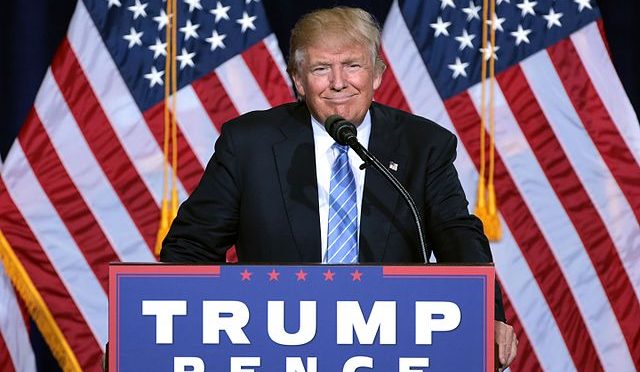Donald J. Trump will be the next President of the United States, and Republicans maintained control over the House of Representatives and the Senate. Since the election results became clear, equity markets have rallied sharply. At the time of this writing, the U.S. stock market is up about 5.6% since the election, while the bond market has fallen 2.5% on the back of sharply higher interest rates.
 The real question is what happens next, and how the potential policy changes could impact your finances? With President Trump, that’s something of a wild card, since his proposals have mostly been light on details. Still, by looking at what he has proposed, along with past proposals by the Republican Congress, and assuming there will be little effective opposition from the Democrats for the near future, we can get a sense for why the markets have reacted as they have, and some clues about what may come next.
The real question is what happens next, and how the potential policy changes could impact your finances? With President Trump, that’s something of a wild card, since his proposals have mostly been light on details. Still, by looking at what he has proposed, along with past proposals by the Republican Congress, and assuming there will be little effective opposition from the Democrats for the near future, we can get a sense for why the markets have reacted as they have, and some clues about what may come next.
Tax Cuts and Deficit Spending
Mr. Trump and Paul Ryan, the Speaker of the House, have proposed very similar reductions in personal and corporate income taxes. Depending on whose numbers you look at, these total somewhere between $4.5 and $7.5 Trillion in reduced government revenues over the next 10 years. Mr. Trump has also proposed as much as $550 Billion in infrastructure spending and $800 Billion in additional defense spending. To the extent that these are not offset by spending cuts (and so far nothing significant has been discussed openly), the resulting deficit spending could boost economic growth somewhat while it lasts. This mostly explains the stock market’s rally.
This significant expected fiscal stimulus should give the Federal Reserve breathing room to raise interest rates, which they have been unwilling to do for several years, in part due to cuts to government spending. The bond markets have reacted negatively to expectations of higher deficits, more government debt and expected higher interest rates.
Trade
Although Mr. Trump ran on a promise to renegotiate our existing trade pacts, it’s not clear how much he can actually do with a very trade-friendly House and Senate. Still, the prospect that Mr. Trump may be able to force some production back to the U.S. from lower-cost producers like China and Mexico has pushed expectations for future inflation sharply higher. Trade tariffs imposed by a Trump Administration (and reprisals by trade partners) could also raise the costs of consumer goods, driving up inflation (and by extension, interest rates).
Health Care Policy
Past proposals to reform the Food and Drug Administration (and recent comments from Mr. Trump himself) suggest efforts to streamline the drug approval process. This should result in quicker (and less stringent) approval of new drugs, which has benefited pharmaceutical stocks.
Mr. Trump and Congressional Republicans have vowed to repeal and replace the Affordable Care Act, though no serious proposals for what that would look like have yet come to light. This is unlikely to affect the healthcare industry in the near term, but it does raise uncertainty around health care policy and coverage going forward.
Reduced Regulation
Mr. Trump and Congressional Republicans have repeatedly spoken of the need to repeal the Dodd Frank financial reforms enacted after the 2008 financial crisis, emissions standards set by the Obama Administration, and generally scale back government regulations across multiple industries. Not surprisingly, financial, industrial and energy stocks have been some of the biggest winners since the election.
Should you change your investment strategy?
Given investors’ high levels of anxiety about President-elect Trump’s impact on finances for the future, it’s important to reiterate that elections by themselves do not decide policy outcomes, nor do they generally direct the long-term health of the economy and the businesses that operate within it. Without knowing which policy proposals will eventually be enacted, and when or how they might unfold, making preemptive, emotionally charged investment decisions is more likely to hurt than help.
We do believe the election raises new questions and thus increases uncertainty for the global economy and markets in coming years. Uncertainty and the risk of sharp reversals are inevitable but unpleasant aspects of investing. Having the discipline to stay focused on the long-term drivers of investment performance is key to successful long-term investing.
Making decisions about investing requires a clear view of your own particular retirement picture. That’s where your financial advisors come in. Please contact us to learn more about how our disciplined investment philosophy and our wealth management process can help you manage your finances during uncertain times such as these.
Photo credit: Gage Skidmore | Wikipedia

